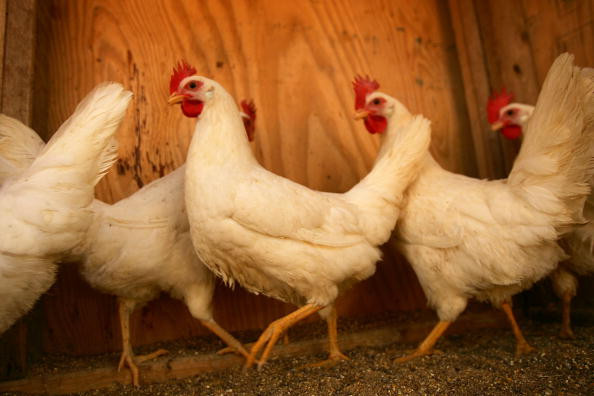World's first test-tube chicken on the way

Researchers in Israel are working on the world's first lab-grown chicken, two years after scientists produced the first test tube beef hamburger.
The research funded by a non-profit group, the Modern Agriculture Foundation, hopes to replace the practise of raising animals for slaughter with "cultured meat".
In the not so distant future we will look back at how we used to raise cows and chickens and put so much effort into getting a small piece of meat.
Shir Friedman, the foundation's co-founder, hopes that by the end of the year, there will be, "a recipe for how to culture chicken cells."
"In the not so distant future we will look back at how we used to raise cows and chickens and put so much effort into getting a small piece of meat," said Friedman.
Professor Amit Gefen, a bioengineer at the Tel Aviv University, has already started the yearlong feasibility research into producing chicken in a lab.
Gefen, an expert in tissue engineering, is hoping to produce a whole piece of chicken starting from a single cell instead of gathering small fibers of cow muscle into one big piece of meat, reported Reuters.
Gefen plans to culture chicken cells and allow them to divide and multiply.
Researchers foresee raising chickens in the lab to be more difficult than producing the first lab-grown hamburger, which was cooked up at the Maastricht University in the Netherlands after five long years of research.
The beef patty was estimated to be worth $300,000 (£201,514) with the research being funded by Google co-founder Sergey Brin.
Animal rights group, People for the Ethical Treatment of Animals, had put forward a $1 (£671,713) million prize for the first lab to produce commercially viable test tube meat using chicken cells, however its 2014 deadline has now passed.
Meanwhile, demand for meat is expected to double between 2000 and 2050. Cultured meat is believed to be the only way to meet the growing demand without damaging the environment.
Cultured meat production will release 96 per cent less greenhouse gas, consume 82 to 96 per cent less water and possibly eliminate the need for land to raise livestock, revealed a joint study conducted by the Oxford University and the University of Amsterdam.
© Copyright IBTimes 2025. All rights reserved.






















